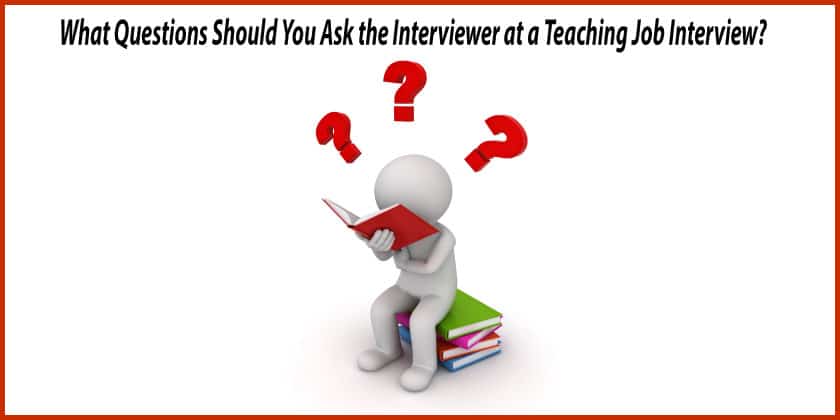Attending a teacher interview can be pretty nerve-racking, overwhelming, and daunting. Researching the school or school district to determine what teacher interview questions to ask at the end of the meeting is essential.
Many professional educators become overly anxious and nervous during the interview process. You are not alone if you suffer from these jitters before or during your interview.
The key to controlling these emotions is adequately preparing for the interview before practicing interview questions and answers.
Knowing how to answer and ask teacher interview questions will help you succeed in your next teacher interview.
If you’ve prepared for the interview beforehand, you will have practiced several answers to general questions. Preparation will build confidence and assist you in performing better during the teaching interview. When interviewers ask you a question, respond by first listening to each interview question all the way through. Be thorough and concise when replying.
Don’t try to use one question as the catalyst to recite everything you know. If you heard the question but lost a part of it, ask to have it repeated or rephrased to give yourself a little time. Listen carefully, then formulate a well-thought-out and genuine answer.
It is all right to say, “I’m not sure what you are asking. Can you rephrase it for me, please?” Asking for clarification is better than answering without fully understanding the question. It’s all right to tell the interviewer you don’t know if you don’t know, and even if you tried, you couldn’t fit the question into one of your belief statement frameworks.
It’s necessary to be honest, even if you can’t answer a question. Everyone would like to know the answers to each inquiry. It’s always better to answer honestly. If you try to make something up, the interviewer will realize what you are doing, and you will only make yourself more nervous.
A willingness to learn about something you don’t know is desirable in an educator. Don’t rush your responses to interview questions. If you need a minute to think and formulate your answer, then do so. It is always better to answer thoughtfully than to ramble on while searching for something to say.
If you experience nervous tendencies during the interview, use all the stress management techniques you know. Breathe deeply, pause, and think clearly before answering each question. Always take a few seconds to organize your thoughts rather than say the first thing that comes to mind. Remember, everyone in the interview room has had to undergo an interview to get where they are.
Many educational leaders tend to be sympathetic to new teachers – they remember the process and are compassionate about what you are experiencing. Use this realization to help you calm down.
After the interview’s question and explanation portion, the interviewers will usually ask if you have any questions for them.
If your interviewer asks you this, I would take advantage of this opportunity. If you have questions and are not invited to ask them, please ask if there is time for a few questions after the interview is complete. Take your cues from the interviewer on how long you have to continue.
Don’t feel pressured to ask questions; asking genuine and relevant questions will show interest in the position.
Ask questions you can’t find answers to on the school website or questions of interest.
A few questions to consider are:
- Could you describe the collaboration and teamwork among teachers and staff in the school?
- Is there anything specific you’re looking for in the ideal candidate for this teaching position?
- How does the school promote a positive and inclusive learning environment for students and staff?
- Can you tell me more about the school’s approach to professional development and opportunities for growth as an educator?
- What tools, resources, or technologies are teachers provided to perform their job effectively?
Asking astute questions will leave a positive impression on the interviewers and reinforce your enthusiasm for the education position.


